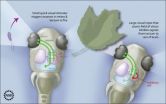(Press-News.org) THE HAGUE (2 November 2010)—A unique acacia known as a "fertilizer tree" has typically led to a doubling or tripling of maize yields in smallholder agriculture in Zambia and Malawi, according to evidence presented at a conference in the Hague today. The findings were central to the arguments of agroforestry experts at the conference, who urged decision makers to spread this technology more widely throughout the African nations most vulnerable to climate change and food shortages, and to think differently about more practical ways to solve the problems that are most pressing to smallholder farmers.
Speaking today at The Hague Conference on Agriculture, Food Security and Climate Change, Dr. Dennis Garrity, Director General of the World Agroforestry Centre, said that evergreen agriculture—or the integration of fertilizer trees into crop and livestock-holding farms—is rapidly emerging as an affordable and accessible solution to improving production on Africa's farms.
"Doubling food production by mid-century, particularly in Africa, will require nonconventional approaches, particularly since so many of the continent's soils are depleted, and farmers are faced with a changing climate," Garrity said. "We need to reinvent agriculture in a sustainable and affordable way, so that it can reduce its emissions of greenhouse gases and be adapted to climate change."
Garrity spoke to leading agriculture and climate scientists, policymakers, development experts, and private sector representatives from around the world gathered at The Hague to develop a concrete action plan for linking agriculture-related investments, policies, and measures to transition agriculture to lower carbon-emitting, climate-resilient growth.
In a recent article in Food Security, Garrity and co-authors highlighted how evergreen agriculture has already provided benefits to several million farmers in Zambia, Malawi, Niger and Burkina Faso. Fertilizer trees draw nitrogen from the air and transfer it to the soil through their roots and leaf litter, replenishing exhausted soils with rich sources of organic nutrients. The trees bolster nutrient supply, increase food crop yields, and enhance the production of fodder, fuel and timber. These systems also provide additional income to farmers from tree products, while at the same time storing much greater amounts of carbon than other agricultural systems.
For example, farmers in Malawi have increased their maize yields by up to 280 percent when the crop is grown under a canopy of one particular fertilizing tree, Faidherbia albida. Unlike most other trees, Faidherbia sheds its leaves during the early rainy season and remains dormant during the crop-growing period. This makes it highly compatible with food crops because it does not compete with them for water, nutrients, or light—only the bare branches of the tree's canopy spread overhead while crops of maize, sorghum, or millets grow to maturity below. The leaves and pods also provide a crucial source of fodder in the dry season for livestock when nearly all other plants have dried up. The trees may continue to provide these cost-free benefits for up to 70 to 100 years.
In Niger, there are now more than 4.8 million hectares of millet and sorghum being grown in agroforests that have up to 160 Faidherbia trees on each hectare.
The Intergovernmental Panel on Climate Change (IPCC) has already noted that transforming degraded agricultural lands into agroforestry has far greater potential to store carbon than any other managed land use change.
Researchers suggest that integrating agroforestry into farming systems on a massive scale would create a vital carbon bank. The IPCC estimates that a billion hectares of developing country farmland is suitable for conversion to carbon agroforestry projects.
A broad alliance is now emerging of governments, research institutions, and international and local development partners committed to expanding evergreen agriculture and agroforestry. The International Fund for Agricultural Development, the Alliance for a Green Revolution in Africa, the European Union, the Consultative Group on International Agricultural Research, and the UN Environment Programme are among those interested in developing partnerships to move the evergreen agriculture agenda forward.
"We are already working with 18 countries across the African continent to develop national plans for the accelerated implementation of evergreen agriculture," Garrity explained.
The next step is to further refine and adapt the technologies to a wider range of smallholder farming systems in diverse agricultural environments, so that millions more farmers can benefit now and for generations to come from such sustainable solutions to their food production challenges.
"Evergreen agriculture allows us to glimpse a future of more environmentally-sound farming where much of our annual food crop production occurs under a full canopy of trees," said Garrity.
###
For further information, please contact:
Paul Stapleton, Acting Head of Communication: p.stapleton@cgiar.org tel: +254 20 762 4260
mobile: +254 717718387
Dennis Garrity, Director General, World Agroforestry Centre: d.garrity@cgiar.org
mobile: +254 722521204
For more information on evergreen agriculture, visit: http://www.worldagroforestry.org/evergreen_agriculture
The World Agroforestry Centre, based in Nairobi, Kenya is the world's leading research institution on the diverse role trees play in agricultural landscapes and rural livelihoods. As part of its work to bring tree-based solutions to bear on poverty and environmental problems, centre researchers—working in close collaboration with national partners—have developed new technologies, tools and policy recommendations for increased food security and ecosystem health. www.agroforestry.org
END
CHAMPAIGN, lll.— Ignoring topography, efficiency, expense and even their own surveyors' recommendations, regional railroad officials in the mid-19th century diverted a new rail line around New Philadelphia, Ill., "the first town in the United States planned, platted and legally registered by an African American," a University of Illinois researcher reports. The bypass pushed what would have been a fairly straight, even run of railroad tracks from Griggsville, Ill. to Hannibal, Mo., in a wide, hilly arc around New Philadelphia.
The findings, reported in Historical Archaeology, ...
While simple falls, such as slipping while walking off a curb, may seem relatively harmless, they can actually lead to severe injury and death in elderly individuals, according to a new study published in The Journal of Trauma: Injury, Infection, and Critical Care. As the population continues to age, it is important for physicians and caregivers to be aware of and prepared to deal with this issue, which could significantly impact the overall health and wellbeing of older adults.
In contrast to falls from greater heights, ground-level falls – essentially falls from a ...
WASHINGTON, Nov. 1, 2010 — Generations of Moms and Grandmas have preached the virtues of not wasting food. Now scientists are reporting a compelling new reason to follow this advice: It could save enormous amounts of energy, according to the latest episode in the American Chemical Society's (ACS) award-winning podcast series, "Global Challenges/Chemistry Solutions." They say that the United States could immediately save the energy equivalent of about 350 million barrels of oil a year — without spending a penny or putting a ding in the quality of life: Just stop wasting ...
CORVALLIS, Ore. – Engineers at Oregon State University have discovered a new method to speed the production rate of nanoparticles by 500 times, an advance that could play an important role in making nanotechnology products more commercially practical.
The approach uses an arrayed microchannel reactor and a "laminated architecture" in which many sheets, each with thousands of microchannels in them, are stacked in parallel to provide a high volume of production and excellent control of the processes involved.
Applications could be possible in improved sensors, medical ...
CHICAGO (November 1, 2010) – According to a report published in the October issue of the Journal of the American College of Surgeons, a grant-funded program tailored to provide advanced minimally invasive surgery skills to young, underrepresented minority surgeons, is helping address shortages of minority faculty members at US medical institutions.
The report states that the Diverse Surgeons Initiative (DSI) has helped 86 percent of graduates in the program acquire fellowship training. These outcomes surpassed the 2005 national percentage of fifth-year residents in academic ...
Patients taking inhaled corticosteroids are at increased risk of developing type 2 diabetes, and more so with higher doses, say researchers at the Jewish General Hospital's Lady Davis Institute for Medical Research (LDI) In Montreal. The risk is of special concern for patients suffering from chronic obstructive pulmonary disorder (COPD), and much less significant for asthmatics.
"These medications are very effective in asthma, so the benefits clearly outweigh the risk for asthmatics," said Dr. Samy Suissa, Director of the Centre for Clinical Epidemiology at the LDI, and ...
Ann Arbor, Mich. — Helicobacter pylori, a common stomach bacterium, reduced the severity of inflammation of the colon caused by Salmonella in mice, according to research from U-M Medical School scientists.
More than half the people in the world are infected with H. pylori, although it is very unusual to find it in the United States. But this research shows there may be an inflammation control benefit to hosting the H. pylori infection, says Peter Higgins, M.D., Ph.D., M.Sc., lead author of the study published last week in the journal Inflammatory Bowel Diseases.
"If ...
Honesty pays off, according to a new study of job seekers. When job applicants were warned that a pre-employment test could detect fake responses, they gave more honest answers -- a result that could improve their chances of being hired. Results were published in the human resources journal Applied HRM Research.
"People may be tempted to make themselves look as attractive as possible to employers, but honesty is always the best policy, since many pre-employment tests have ways to spot fakers," said Chris Wright, associate professor of psychology at San Francisco State ...
Between alerting us to danger and allowing us to spot prey, vision keeps many animals, including humans, alive. But exactly how does this important sense work, and why is it easier for us to spot movement of small objects in our field of vision, than to notice other things? The complexity of the neural network that supports vision has long baffled scientists.
Now, with a new technology and support from the National Science Foundation, Claire Wyart in Ehud Isacoff's lab at the University of California at Berkeley and Filo Del Bene at Herwig Baier's lab at the University ...
Boston, MA, October 30, 2010 – Vertex Pharmaceuticals Incorporated (Nasdaq: VRTX) today announced new data from its Phase 3 studies of people with genotype 1 chronic hepatitis C who have not been treated previously. In these studies, the majority of people achieved superior sustained viral response (SVR or viral cure) rates with a telaprevir-based combination regimen, compared to current therapies, regardless of race/ethnicity or stage of liver fibrosis (factors known to limit response to current hepatitis C treatments). Patients in the ADVANCE and ILLUMINATE studies were ...

